Manju Nath distinctly remembers the house he saw decades ago in Bangalore (now Bengaluru). The red brick house had an earthy appeal, large windows and was surrounded by trees that looked a hundred years old. He wished to own a similar vernacular house someday that would be built with sustainable, eco-friendly materials.
Today, Manju lives in a house made of stones and bricks that entirely runs on solar power while storing thousands of litres of rainwater. He also recycles the household waste and uses it as fodder for his sprawling food garden.
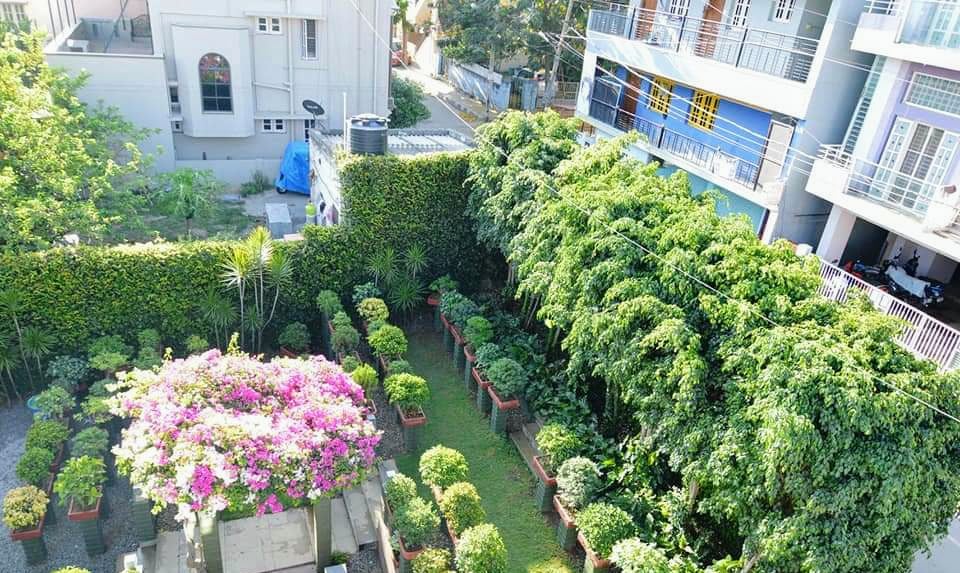
The Better India speaks to Manju who is determined to stay true to his pro-environment commitment.
“In 2007, we translated our dream into a reality with help from a relative who is into construction. He helped us cut down the construction costs by 10-15% using materials like stones and bricks which comprises 70% of the building. The rest is built with cement,” says Manju, adding, “My wife, Geeta, designed the interiors. The tragedy of urban life is we are too dependent on others for everything like water, electricity and food. We have forgotten how to sustain ourselves and that is invariably harming the environment. This house is our reminder to be responsible for our needs.”
The House That Manju Built
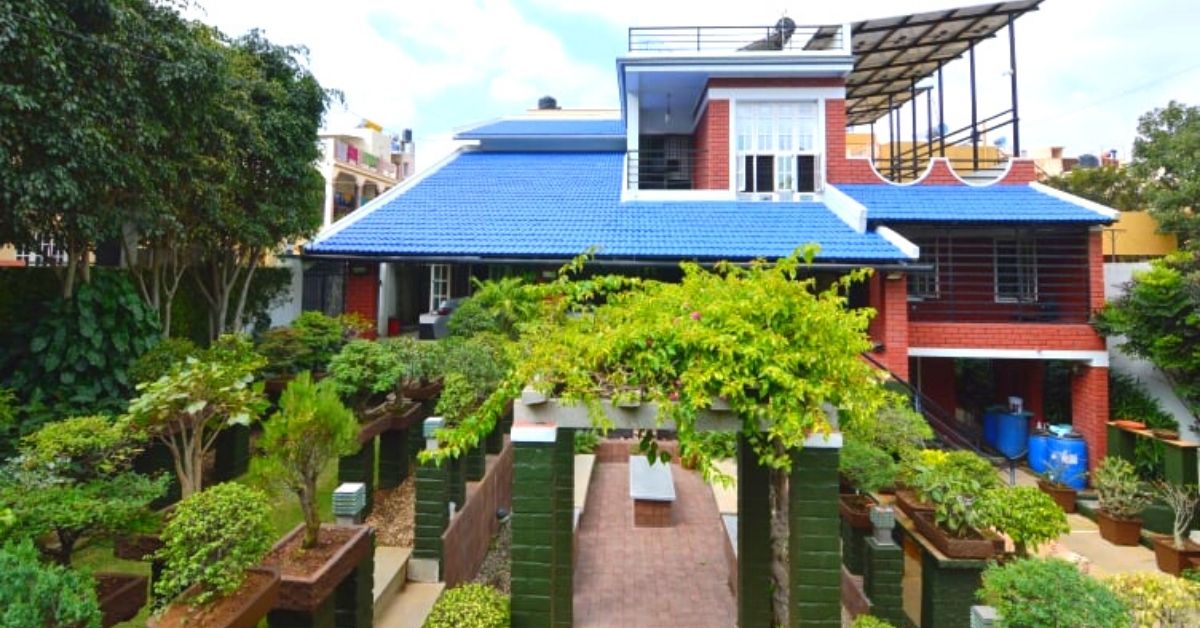
Manju proudly proclaims that the house has no air conditioners despite the soaring temperature of Bengaluru’s summer. He wisely executed the concept of cross ventilation at different levels of his house. The large openings of the house also allow for plenty of natural light, thus cutting down on artificial light usage.
“Due to the use of bricks and cross ventilation, the temperature inside the house is always 2 to 3 degrees lower than the temperature outside. Thanks to our passive cooling techniques, the temperature inside rarely crosses 28℃, which is pleasant,” says Manju.
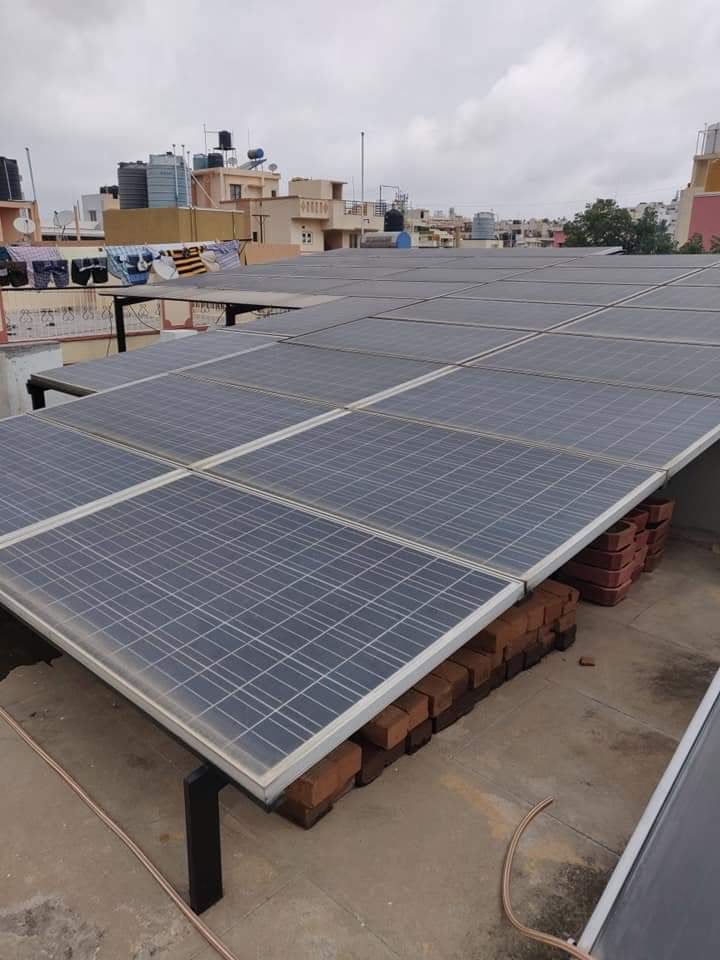
If saving electricity through cross ventilation was not enough, the couple also installed solar panels on the roof a couple of years ago. The local government had just started promoting solar energy at the domestic level by introducing various beneficial schemes. The couple claim to be one of the pioneering beneficiaries in the city.
“Our 10 kilowatt solar installation generates around 1000 units of solar power every month. We consume around 250 units. The surplus power is sold to the electricity board. They pay us Rs 9 per unit, as per the solar scheme. Annually, we earn around Rs 70,000 from our surplus power, and this contract is valid for 25 years. We have recovered the installation costs which was Rs 9,00,000. Though solar installation may seem like a huge investment, it will guarantee concrete returns,” says Manju.
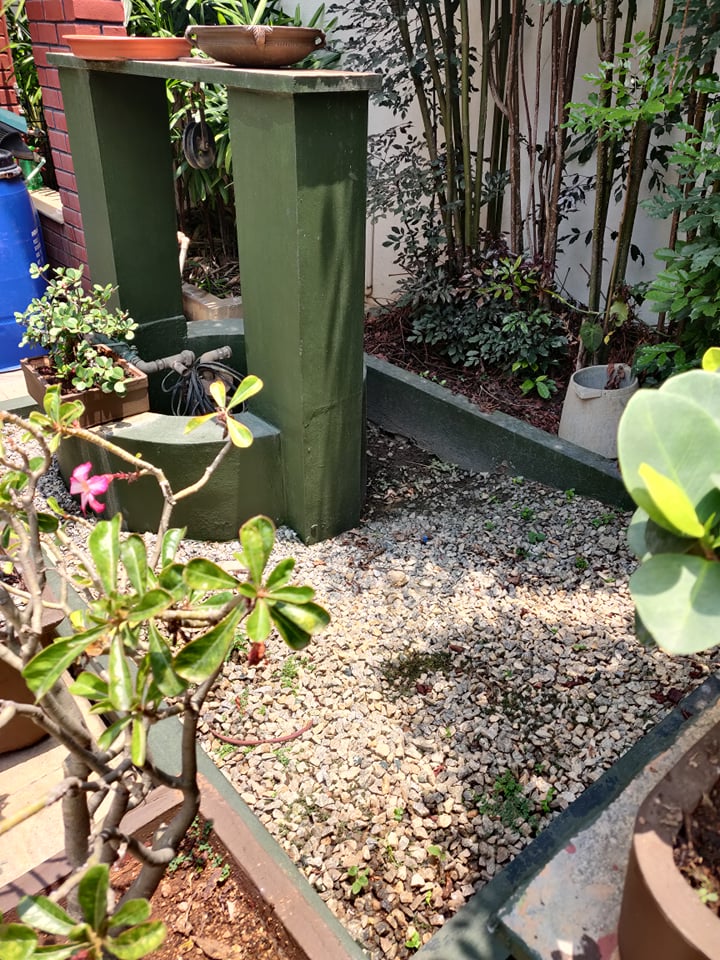
The couple is also harvesting rainwater. The house sits on a sloping terrain so the garden is designed in a way that pushes all the water towards a particular site where the water percolates underground through a pit. The sand and gravel help filter the water which is then transported to the borewell. This way, the groundwater tables remain charged and the borewell is full.
“Our rainwater harvesting structure can store around 4,50,000 litres per year, of which we consume 2,00,000 litres. The rest recharges the groundwater tables,” he adds.
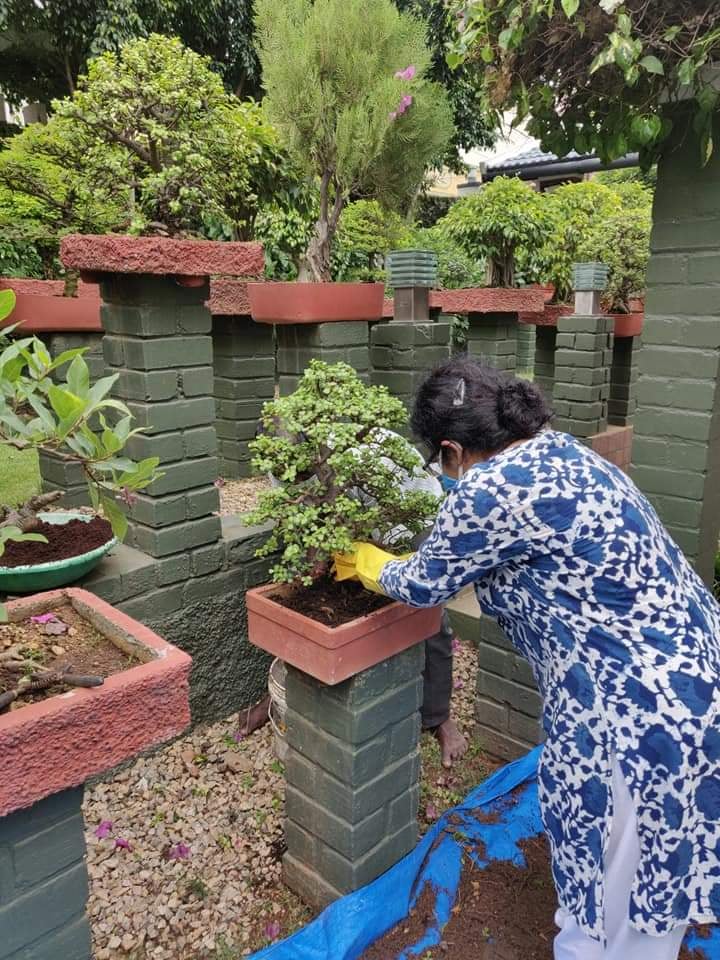
The high concentration of underground water improves the fertility of the soil, which in turn aids the growth of vegetable and fruit-bearing trees. The duo has planted leafy vegetables, brinjal, carrots, chillies and fruit trees like pomegranate, papaya and guava. The food is grown organically from compost made from household and garden waste.
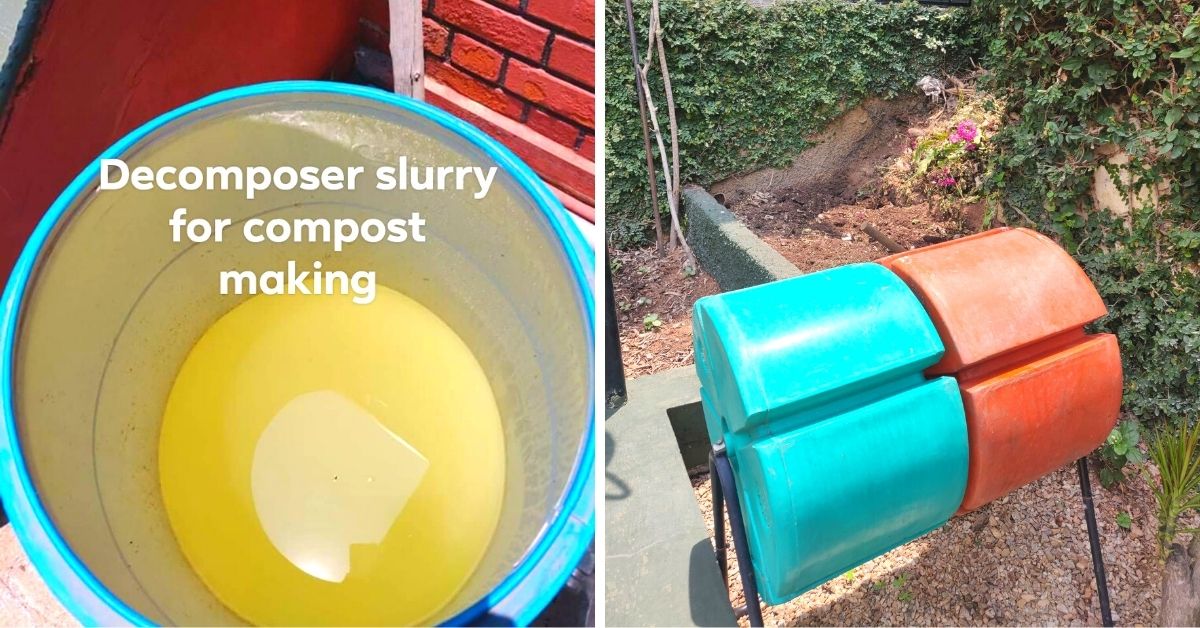
“We have a two-drum system to deposit our waste, each with a capacity of 40 kilos. We add an organic fertiliser to quicken the process. Every month we get approximately one quintal of nutrient-rich compost,” says Manju.
Having adopted all possible eco-friendly practices in an urban setting, Manju and Geeta now enjoy a healthier lifestyle — one with fresh air and water and healthy food.
Edited by Yoshita Rao
No comments:
Post a Comment